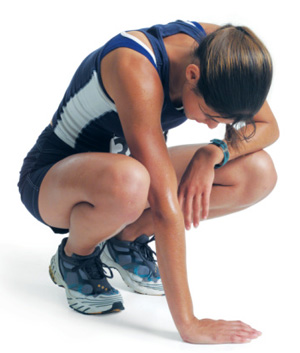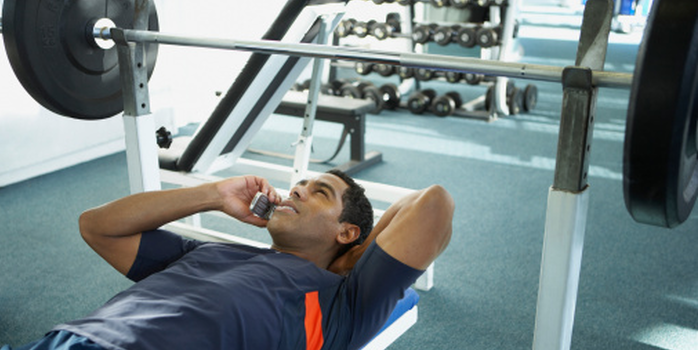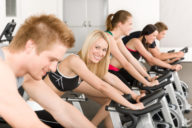Exercising isn’t all that complicated really, but it’s still very easy to make mistakes. The mistakes are typically made from lack of proper technique or due to rushing to get the workout done. It doesn’t matter what the reason is for the mistakes, they can cause injuries or can be quite possibly counter-productive to your fitness goals.
While it is super important to know how to reach your fitness goals and how to implement certain things into your program, it is just as important to know what NOT to do! When working out keep in mind the following common mistakes and how you can avoid them. These tips will help make sure your workouts are effective and help prevent injuries.
 Too Much, Too Soon
Too Much, Too Soon
Many people new to working out or those who haven’t worked out in a while, try to lose weight too quickly. They start exercising too frequently or do workouts that are too difficult for them at the beginning. Start with an exercise plan that takes your current fitness regimen (or lack of) into account. Progress through your program so you wreak the benefits without burning out after a month. Don’t “DIET” aggressively to lose all your weight in a month! Eat healthy with the purpose to lose weight over time!
Don’t Believe The Hype
There are many fitness “gimmicks”. Contrary to what these gimmicks present, losing a pound a day or get a six pack in 2 months by using a particular piece of equipment, is unrealistic and unhealthy. If it seems too good to be true, it probably is! Nothing beats consistency, determination, a willingness to try and self-awareness. Make changes based on what is good for you, realistically and in a time frame that will create longevity.
Ignoring Expert Advice
When starting out most people first join a gym and do a little bit of this and a little bit of that. Due to coming off being somewhat sedentary, you will definitely see results at first. You will although, quickly hit a plateau. Seeking advice from the start from a fitness professional and or nutritionist is the best plan! Get started right so you don’t have to keep starting from scratch!
Over-Training
If you start to feel extremely tired, repeatedly get injured, or stop seeing results or your results start reversing, then it might be due to exercising too much. Balance is important and more is not always better. If you find you are feeling the above symptoms, consider reducing the frequency of your workouts, lowering the intensity of some of them and how long you workout. Taking a rest day is essential to recovery and to avoid burnout!
Not Keeping Hydrated
Drinking water on a daily basis is important. Drinking enough water daily is even more important! Having only 2 glasses of water a day is not going to cut it, aim for at least 8. But always consider caffeine consumption and how much you workout. If you drink 2 cups of coffee per day, then you need to consume at least 2 extra glasses of water. If you workout every day, you need to consume 16 ounces of water extra, for every hour you workout!
Eating Too Little
Yes, that’s right! Not eating enough can be as detrimental as eating too much. When the body is not fed consistently, it goes into a starvation mode. There is so much information out there saying to eat 5 meals a day, intermittent fasting, etc. Do your homework! Eating 7 meals a day is excessive and stressful on your digestive system, but eating once a day can be very hard on your hormones especially for women. My suggestion for most people is 3 meals 2 snacks.
Going To Workout But End Up Hanging Out

Just showing up at the gym is not going to help you reach your goals. Talking for 10 minutes between sets won’t build muscles. It’s important to enjoy your time at the gym but make sure that the focus remains on your workouts and not socializing.
Fixating On The Scale
If you think the scale doesn’t lie, think again. Many professional athletes or people who workout a lot would be considered obese based on their weight alone. BMI, which is height to weight ratio, can make a very fit and muscular person overweight! Look at the bigger picture! Focus on body fat loss and fitness level increases as a tool for measuring positive results.

























No Comments